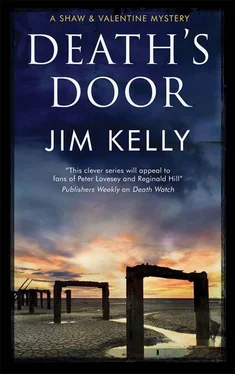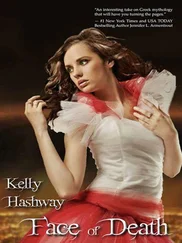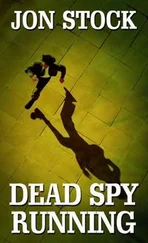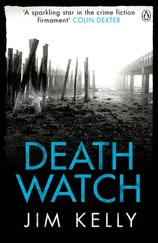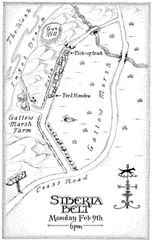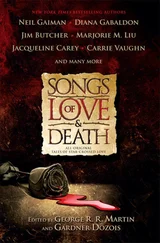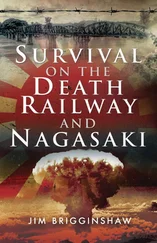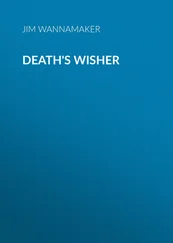Jim Kelly - Death
Здесь есть возможность читать онлайн «Jim Kelly - Death» весь текст электронной книги совершенно бесплатно (целиком полную версию без сокращений). В некоторых случаях можно слушать аудио, скачать через торрент в формате fb2 и присутствует краткое содержание. Жанр: Полицейский детектив, на английском языке. Описание произведения, (предисловие) а так же отзывы посетителей доступны на портале библиотеки ЛибКат.
- Название:Death
- Автор:
- Жанр:
- Год:неизвестен
- ISBN:нет данных
- Рейтинг книги:4 / 5. Голосов: 1
-
Избранное:Добавить в избранное
- Отзывы:
-
Ваша оценка:
- 80
- 1
- 2
- 3
- 4
- 5
Death: краткое содержание, описание и аннотация
Предлагаем к чтению аннотацию, описание, краткое содержание или предисловие (зависит от того, что написал сам автор книги «Death»). Если вы не нашли необходимую информацию о книге — напишите в комментариях, мы постараемся отыскать её.
Death — читать онлайн бесплатно полную книгу (весь текст) целиком
Ниже представлен текст книги, разбитый по страницам. Система сохранения места последней прочитанной страницы, позволяет с удобством читать онлайн бесплатно книгу «Death», без необходимости каждый раз заново искать на чём Вы остановились. Поставьте закладку, и сможете в любой момент перейти на страницу, на которой закончили чтение.
Интервал:
Закладка:
He let the words hang there. ‘So I made the call for her — told ’em she was ill. That’s where I left her. . in bed, about nine.’
Shaw watched Osbourne sip the whisky. Each mouthful was substantial and he didn’t gag. Shaw got the impression he was in it for the long run, and that he’d been down the road before.
Osbourne filled his narrow chest with air, squaring the fragile shoulders. ‘How did she do it?’ he asked. ‘This time.’ He sat, rocking slightly in his chair, and Shaw thought how tiring it would be to live with his bristling energy, the lack of peace.
‘We’re pretty certain that she swallowed poison, a cyanide capsule. A suicide pill. Have you any idea where she could have got such a thing?’
‘I don’t understand.’ But he did, Shaw could see, it was just that he didn’t have an answer.
‘And we believe that she may not have been alone when she died,’ added Shaw. ‘Have you any idea who might have been with her, Mr Osbourne?’
‘Not alone?’ Osbourne stood, as if he’d suddenly found the strength to be upright. He put the whisky glass down with exaggerated care. It was as if he hadn’t heard the question. ‘Can I see her — Marianne? I should.’ His voice was rising, taking on a note of panic. ‘I want to see her.’ His head, which was small and compact, seemed to shake at a very high frequency.
Before Shaw could answer they heard voices in the front garden — women’s voices — and then the door opened and slammed and they heard heavy footsteps in the hall, and a teenage girl appeared in the doorway. Her face was already disfigured by shock — the mouth hung open, the micro-muscles beneath the skin malfunctioning, so that her face seemed to shimmer and distort. But even in distress Shaw could see the resemblance to the dead woman: the colouring, although the hair was dyed a more striking red, and the fine bone structure, which seemed to stretch translucent skin.
She walked to Osbourne, who’d slumped back into his seat, and knelt down so that they could hold on to each other. Osbourne slipped from the chair to his knees and Tilly took his weight, letting his head sink to her shoulder.
A woman stood at the doorway. Shaw could see the resemblance to the dead woman in her too, in the colouring — the auburn hair, the green eyes. This had to be Ruth, Marianne Osbourne’s next-door sister. But she was also a striking opposite to her sibling: fleshy and rounded, the skin tanned from the wind and sun, so that she had no hint of tragic paleness. Shaw recalled that she worked at the Lido at Wells, and he could imagine her, executing an efficient breaststroke, effortlessly covering length after length, her head clear of the water. She looked at Shaw. ‘I told her,’ she said, ‘that Marianne’s gone.’
They heard Joe Osbourne thank her, his mouth buried in the nape of his daughter’s neck. Osbourne, sitting back now on his haunches, was sobbing, his hands fluttering in front of his face like a pair of bird’s wings. He kept saying, ‘Thank God’, and touching his daughter on her head, as if giving her a blessing.
Shaw and Valentine went out into the hallway. By the front door, thrown down, was a placard with a wooden stump.
Save Our Unspoilt Landscape.
SOUL
Ruth followed them out. Up close Shaw could see her skin was unnaturally clean and slightly rucked, like corrugated paper. ‘I don’t think she can face any questions tonight,’ she said. ‘But she did say they argued this morning because she didn’t want to revise for the resits. She wanted to go with her mates — that’s what she said. In fact, she wanted to go up to Docking Hill, to the wind farm demo. But she didn’t tell Marianne that, or Joe.’
Shaw thought how odd it was that no one in the family ever shortened the victim’s name to something less formal, less cool. Marie, perhaps. And he wondered if Tilly had been there, up by the wind farm gates, when he and Valentine had driven through on the way down to the coast.
‘She’s been up there all day,’ added Ruth, answering a question Shaw hadn’t asked. ‘Till four. Then she went to the boyfriend’s down in Wells and they went for a drink on the front — The Harbour Lights. Marianne wouldn’t have approved of that either.’ Ruth looked down the short corridor to the bedroom, where the door was open but still blocked with the yellow and black tape. ‘It’s an awful shock,’ she said. ‘But the worse thing is she’s going to think it’s her fault.’
SIX
Shaw parked the Porsche by the lifeboat station at Old Hunstanton. It was past nine but a necklace of beach fires still sparkled along the dunes. He shrugged himself into his rucksack and began to run north along the high-water mark. Out at sea the spot where the sun had set was marked by a flash of green-yellow light, and silhouetted in it were the wind farms off the Lincolnshire coast. As he picked up speed he passed the new lifeboat station, built to house the inshore hovercraft. He’d been the pilot for nearly four years and the radio call-out pager was strapped to his belt, but the summer had been quiet and they hadn’t had a single shout in July. Tonight the sea was a sheet of mercury, untroubled by any wave.
The halfway point to his house was marked by a single stone pine, the branches buckled by the wind, thrown back as if in shock at the sight of the sea. He stopped, climbing the low dunes, to breathe in the view. He filled his lungs with the air that he always imagined had arrived direct from the distant Pole — a 3,000-mile fetch uninterrupted by any landfall. He unpacked the parcel of air he’d drawn into his lungs: salt, ozone and a trace of the exposed seaweed on the cockle beds. But with the wind following the shore there were other elements — a hint of a chemical barbecue tray, the strangely inert aroma of sand itself and a citrus edge from the lone pine.
He could see his wife and daughter long before they saw him, in chairs set out in front of the Beach Cafe. Lena had bought the old shop, derelict, two years earlier, a job lot with a small cottage to the rear and an old boathouse beside it, now transformed into from beach windmills at seventy-nine pence to a sand-yacht at?3,999. Wetsuits had got them through the first year because the surfing revolution had transformed the British beach into a stretch of sand dotted with human dolphins. And while surfing and the North Sea were not natural companions the north-west-facing beach at Hunstanton did catch a decent swell if the wind was right. Next year they planned to open the cafe in the evenings, thanks to a newly acquired alcohol licence. Supplies for the cafe and shop were currently ferried along the sand in an old Land Rover that Lena drove. But they’d need a new 4x4 van to run daily deliveries if they opened late, using the wet, hard sand below the waterline when they could. They’d made the most of this last summer of perfect sunsets because next year Lena might be struggling to serve iced Chardonnay, or bottled Adnams, to thirsty trippers. Surf! , selling anything
His wife stood, black skin showing off the white bikini. Five foot three inches tall, a full figure, but the skin taut and lustrous, especially at the close of a sunny summer. She’d just been in the sea and as she shook her hair Fran screamed, jumping away, the old dog their daughter loved barking at the sudden movement.
Lena brought him a glass of wine, standing close with a hand pressed against his stomach, insinuated through the gap between the buttons on his shirt. Her face was made up of curves, not slight subtle lines but bold, strong facets, so that sometimes he thought of an African mask, the curves around the eyes defining the face. She had a slight cast in her right eye, an odd match for Shaw’s blindness in the left.
Читать дальшеИнтервал:
Закладка:
Похожие книги на «Death»
Представляем Вашему вниманию похожие книги на «Death» списком для выбора. Мы отобрали схожую по названию и смыслу литературу в надежде предоставить читателям больше вариантов отыскать новые, интересные, ещё непрочитанные произведения.
Обсуждение, отзывы о книге «Death» и просто собственные мнения читателей. Оставьте ваши комментарии, напишите, что Вы думаете о произведении, его смысле или главных героях. Укажите что конкретно понравилось, а что нет, и почему Вы так считаете.
